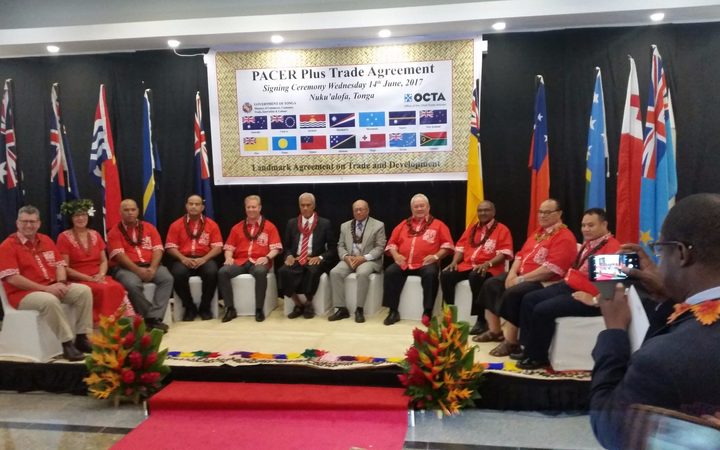On the Indian side, among the those giving talks were Ministers Sushma Swaraj, M.J. Akbar, Smriti Irani, Suresh Prabhu, General (Retd.) V.K. Singh and Hardeep Singh Puri. The current Foreign Secretary, S. Jaishankar, was there, as well as the future one, Vijay Keshav Gokhale. Politically, the tone was kept appropriately neutral, with prominent roles for both Ram Madhav and Shashi Tharoor.
The range and seniority of foreign delegations underlined the uniqueness of India’s global position. There were high-level speakers from around the region and around the world, including the United States, Russia, Iran, Indonesia, Turkey, Singapore and more.
The opening session was addressed by Prime Minister Benjamin Netanyahu of Israel, with Prime Minister Narendra Modi in attendance. It set the tone. While countries may have specific issues with Delhi, there was an overwhelming drive at Raisina to put those aside and instead focus on expanding broad and deep cooperation with India. In the case of Netanyahu, he politely ignored India voting against Israel at the UN on Jerusalem. Rather, he lauded the “natural” bonds between the two countries, the many areas of current cooperation (irrigation, agriculture, defence, etc), the potential for future cooperation, and how pleased he was that Modi was the first Indian leader to visit Israel in its 3,000-year history. It was a genuinely warm speech, and the audience reciprocated.
That desire for “more India please”, was repeatedly echoed throughout the three-day event. Especially in the context of China and the Indo-Pacific. Admiral Harry Harris, Jr., Commander of US Pacific Command, said that he believed that China was a disruptive transitional power, noting the effect on Vietnam of China moving oil research platforms into Vietnamese waters. At the same time, he lauded increased military cooperations between the US and India. Former Canadian Prime Minister Stephen Harper noted that if China is the sole emerging global power it’s more a threat to liberal world order than if free and democratic India also plays a role. Former US Ambassador to India Richard Verma underlined that the Pentagon doesn’t have a rapid response unit for any other country except India—that the relationship between the two countries is unique.
In an Indo-Pacific context, the full potential of the Quad (India, US, Japan, Australia) was on display in a uniquely powerful panel featuring Admiral Sunil Lanba (Chief of Naval Staff, India) Admiral Harris (Commander, US Pacific Command), Admiral Katsutoshi Kawano (Chief of Staff, Joint Staff, Japan) and Vice Admiral Tim Barrett, Chief of Navy, Australia. Hinting at the potential for a Quad+, also on the dais was Dino Patti Djalal, founder of the Foreign Policy Community of Indonesia.
The positive role of global India was rarely questioned and, when it was, it was quickly and firmly answered. When a British Crown Prosecutor of Pakistan origin accused India of “state sponsored terrorism” in Balochistan, General David Petraeus jumped in to say “as director of the CIA, and Commander of ISAF (International Security Assistance Force) in Afghanistan, I never once heard the term ‘Indian state-sponsored terrorism’”. The audience burst into rapturous applause.
So much was covered, a summary is impossible. But key takeaways include:
1. The Indo-Pacific concept is now firmly entrenched in strategic thinking. And that means a bigger role for India. General Petraeus made clear that the shift in the US lexicon from Asia-Pacific to Indo-Pacific is an “explicit” recognition of the importance of India. And Ram Madhav noted that India has to “reorient strategic thinking from west thinking to east looking; from land based to ocean based,” and that it “can’t just be a spectator or a participant, it has to be a stakeholder.”
2. As a part of that, the Quad (and its various bilateral relationships) is increasingly, if tentatively, solidifying.
3. Several US delegates asked the international community to “look beyond the tweets” and see that, far from retreating, the US is becoming more engaged internationally. Participants were urged to read the new National Security Strategy and, even more important, follow the troops and the money. They’d find a stronger stance on China, increased activity in Iraq/Syria/Afghanistan, open criticism and withholding of funds for Pakistan, more funding for NATO, engagement on North Korea, and more.
4. India’s neighbours are also looking to India. Among the speakers were Hamid Karzai, former President of Afghanistan, the State Minister of Foreign Affairs of Sri Lanka and the Foreign Secretary of Nepal. Abul Hassan Mahmood Ali, Minister of Foreign Affairs, Bangladesh noted that India is the only country in the region that has the pull to host an event such as the Raisina Dialogue.
5. Europe and European countries are trying to figure how to engage with India both individually and as the European Union. While the substantial British delegation wasn’t a surprise, there were also high-level delegates from Poland, Italy, Hungary, and others, including the former Prime Minister of Sweden, Carl Bildt. France in particular seems to be looking at closer ties with India. As their Ambassador for the Oceans pointed out, France has territories all over the Indo-Pacific, including in the Indian Ocean and the South Pacific. Which may explain why Raisina also had dedicated closed-door track 1.5 meetings between India/France and between India/Australia/France. Perhaps Paris would like the Quad to become le Cinq.
6. China, China, China.
The theme of the Raisina Dialogue was “Managing Disruptive Transitions”. Foreign Secretary Jaishankar raised four major global disruptions: the rise of China; the choices, postures and behaviour of the US; terrorism; and non-market economics. India potentially has a stabilising role to play in each of the four. From the tone at Raisina, much of the world wants India to play that role. The question is now, what does India want?
Cleo Paskal is The Sunday Guardian’s North America Special Correspondent.
